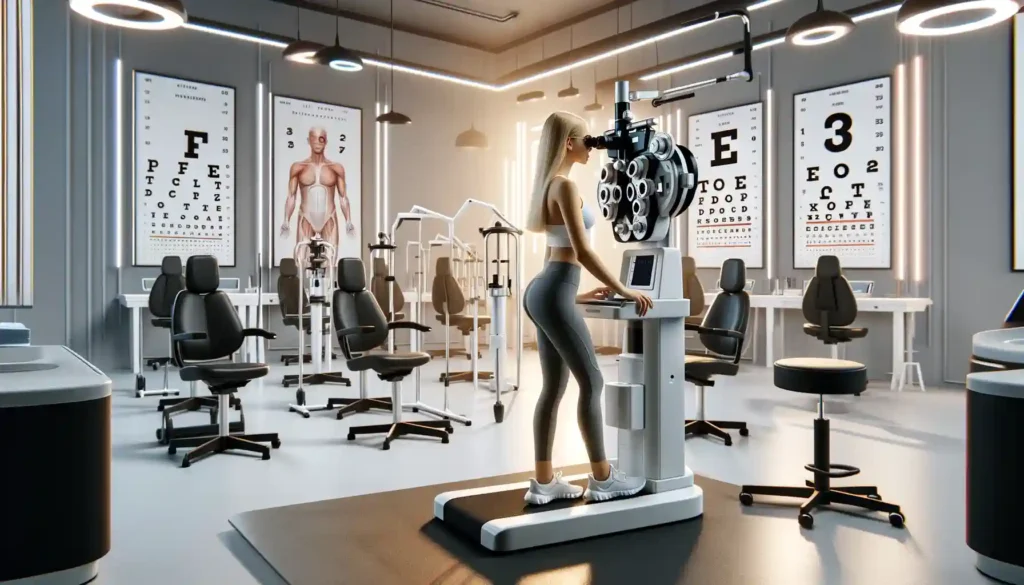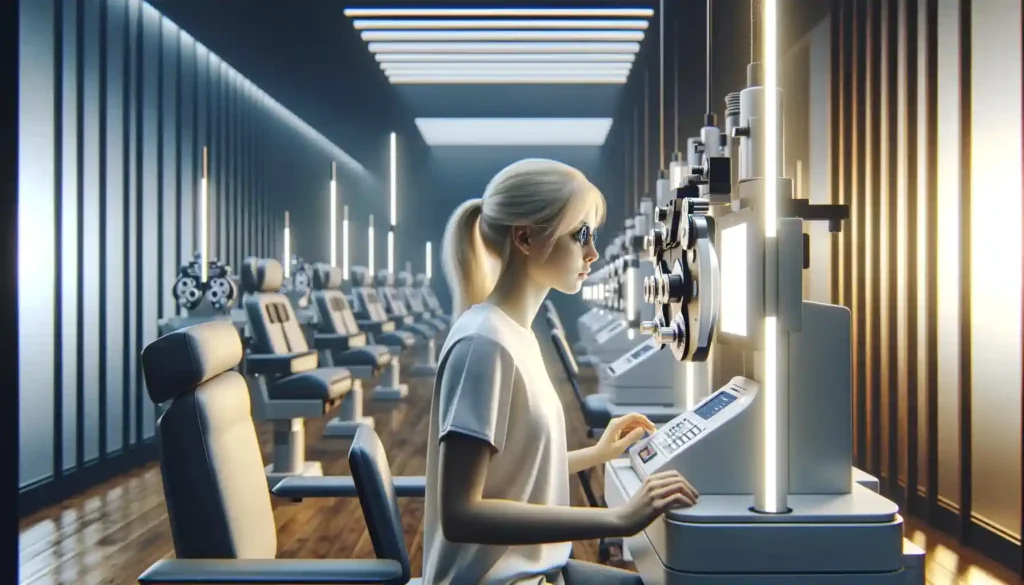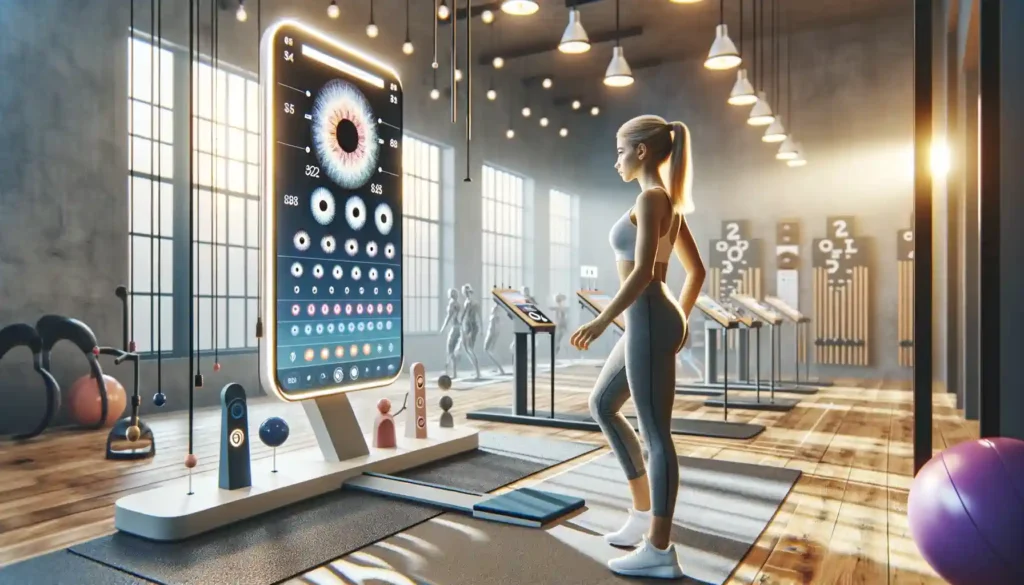Simple Tips for Maintaining Healthy Eyes: Stay Hydrated to See Clearly. The importance of hydration for overall health cannot be overstated, and this is especially true when it comes to our eyes. Our eyes rely on a constant supply of moisture to function properly, and without enough water, we can experience dryness, irritation, and even damage to our vision.

Our eyes are made up of 80% water, and dehydration can cause them to become dry and irritated, leading to blurred vision and eye strain, So Stay Hydrated to See Clearly. The tip of the day is to drink plenty of water throughout the day. We can keep our eyes hydrated and prevent these issues from occurring.
Stay hydrated to see clearly and Keep Your Eyes Refreshed: Calculating water intake
Fortunately, staying Hydrated to See Clearly is a simple and effective way to support the health of our eyes. Here are some tips for getting enough water to keep your eyes healthy and eyesight clearer. Some healthy people need to drink more water than average.
In addition, water can also help to flush out toxins from our bodies, which can improve overall eye health and prevent age-related eye diseases such as cataracts and macular degeneration.
But how much water should you drink to improve your vision? The general rule of thumb is to aim for at least eight glasses (or 64 ounces) of water per day and Stay Hydrated to See Clearly. However, this can vary depending on factors such as your age, weight, and level of physical activity. It is happening in the following cases

8 Tips for Increasing Your Water Consumption
1. Body weight. If you have excess weight, you need to add at least 1 glass of water per day
2. Temperature and humidity. Heat and low humidity also increase the need for water, at least 1.5-2 glasses extra a day. You need to drink as much as you like in the bath or steam room.
3. Rapid breathing. During physical exertion with breathing, more liquids are lost. To replenish it, you must drink a glass of water every hour of active breathing to stay Hydrated to See Clearly.
4. Caffeine, alcohol, and cigarettes. Drink a glass of water to stay hydrated before such drinks and before each cigarette.
5. Breastfeeding. You need to drink as much as you like.
6. Age after 60. Older people are more prone to dehydration because kidney function deteriorates with age, and thirst signals become weaker, which as a result, leads to a lack of fluid in the body.
7. Use of medicines. Many medications lead to dehydration. In addition, additional water is also required to remove these drugs from the body.
8. Colds. Additional water during the flu is needed to flush the body and remove toxins that are formed in it under exposure to the virus. The liquid also liquefies mucus and washes away decay products. Pathogenic microbes from the surface of the mucous membrane of the throat. On the contrary, with diseases of the cardiovascular system, especially in the presence of edema.
There are several ways to determine if a person is drinking enough water
The easiest way to do this is by the color of the urine. It should be light, almost transparent.
You can also pinch your hand on the outer part of the skin smoothe quickly, which means that the cells do not feel thirsty, if not, it is time to change the drinking regime. In addition to drinking water, there are other steps you can take to promote good eye health, such as eating a balanced diet rich in nutrients like vitamins A, C, and E, getting regular exercise, and wearing sunglasses to protect your eyes from UV damage.
Stay Hydrated to See Clearly: Recommended water intake tips to help you absorb water
– you do not need to drink a lot at once and quickly. It is better to drink in small sips in a few receptions. This will greatly facilitate the work of the kidneys;
– drink 1-2 glasses immediately after waking up. This will quickly fill all cells with a digestive moisture system, and the food received at breakfast will be absorbed faster. Regarding the temperature of this water, opinions differ. Some insists on hot (or at least warm) water, and someone insists on cold. It actually depends on the effect you want to receive;
– it is better not to drink very cold water. Due to the sudden temperature change, there is a spasm of the vocal folds, and the voice can disappear for a while. And it makes it easy to catch a cold. In addition, according to the latest research, ice water leads to a decrease in metabolic processes and ultimately leads to obesity;
– do not drink too hot water. This destroys the enamel of the teeth and burns the mucous membranes
Quench Your Thirst, Boost Your Vision
Water will quickly quench your thirst if acidified with citric or ascorbic acid. You can add juices of sour fruits or berries, which works well for quenching thirst. Mineral water, diluted fruit juices. The mineral salts they contain contribute to the retention of the required amount of water in the body. Thirst-quenching water should not be more than 1-2% sugar. Does not give a refreshing effect and water at temperatures above + 12-15 ° С. 55F
Drinking water usually does not immediately quench your thirst. This happens 10-15 minutes after fluid from the stomach and intestines begins to enter the bloodstream. The great effect is also from green tea and cranberry juice. This is because water is absorbed more slowly than drinks. It contains certain signals for the stomach that it is time for it to absorb fluid. Such liquids are contained in broth, fruit drinks, and various light soups. When using them, salivation increases significantly, and dry mouth decreases.
Drinking water is not only essential for overall health, but it can also help improve your vision by keeping your eyes healthy. So make sure to Stay Hydrated to See Clearly naturally and drink plenty of water throughout the day for optimal eye health and visual clarity.

Eyesight Academy Course to See clearly with better eye health
Welcome to Eyesight Academy, where we offer a unique course designed to help you see better naturally! If you’re tired of relying on glasses or contacts to correct your vision, or if you’re simply interested in improving your eye health and visual acuity, then our course is perfect for you.
Our comprehensive program is based on the latest research and techniques in vision improvement and is led by a team of experienced and knowledgeable instructors. You’ll learn a range of exercises and practices designed to strengthen your eye muscles, improve your visual perception, and promote overall eye health.
Whether you’re nearsighted, farsighted, or have astigmatism, our course is suitable for all ages and levels of visual acuity. By following our step-by-step program, you’ll be amazed at the improvements you can achieve in just a few weeks!
Here are some of the benefits you can expect from our eyesight improvement course:
1 Reduced dependence on glasses and contacts
2 Improved visual acuity and clarity
3 Greater focus and concentration
4 Reduced eye strain and fatigue
5 Increased confidence and self-esteem
Our program is also highly flexible, with both online and in-person options available to suit your schedule and learning style. And with our experienced instructors and supportive community of fellow learners, you’ll have all the guidance and encouragement you need to achieve your vision improvement goals.
So why wait? Sign up for our Eyesight Academy course today and start seeing the world in a whole new way!
The harm of Drinking water while eating
In various articles, people write that it is strictly forbidden to drink water while eating. It is recommended not to drink it an hour before meals and 1.5 hours after. However, the whole history testifies that people drank with a meal. If it were so bad, would they not have noticed it? The people of different countries have long practiced drinking in food Time. The differences lie only in the liquids used in water, tea, fermented milk drinks, or coffee.
For example, in Japan, it is popular to drink tea before and during meals. In theory, drinking water or other liquids while eating should slow down somewhat digestion in the stomach by diluting the gastric juice. However, recent studies conducted in the United States did not confirm this position. Obviously, a lot depends on the character of gastric secretion (concentration of hydrochloric acid and enzymes) and food composition.
With obesity and impaired renal excretory function, the amount of fluid consumed is reduced. If the body loses water at a rate of more than 500 ml per hour or loses a tenth of the total amount of water, dehydration occurs. Dehydration can occur with excessive excretion of water (vomiting, diarrhea due to various reasons), insufficient intake into the body, and some diseases. Dehydration also develops when long-term uncontrolled intake of diuretics. With dehydration, the volume of circulating blood decreases, the pressure decreases, the acid-base balance of the body shifts to the acidic side (acidosis), blood viscosity increases, potassium content decreases, and digestion and metabolism are disturbed.
Stay Hydrated to See Clearly: The Danger of Excessive Thirst
With a strong thirst, appetite disappears, dry mucous membranes appear, hoarseness voices, general weakness, nausea, headache, and mental disorders. Dehydration of the body Is one of the life-threatening conditions. It usually happens either with an illness or extreme situations and in any case, requires immediate assistance. If a person can drink himself – he must drink himself. If he cannot, fluids are injected into him intravenously. It should only be noted that cold water drink after eating fatty foods leads to the fact that food is retained in the stomach, and the use of cold water immediately after raw fruits and berries are eaten usually causes gas and bloating in the intestines.
Thus, the question about the use of water or other liquids with meals each person can decide for himself. Someone may not drink while eating, but someone may have a dry piece in the throat that won’t go up. The only exceptions are alkaline mineral waters, which healthy people should not drink before, during, or immediately after eating. During weight loss and exercise, you should not limit yourself to drinking. On the contrary, it is recommended to drink water during training at least every 20 minutes. You also need to drink water before and after physical activity. Never wait for the onset of a feeling of thirst because the moment the brain signals this, the body is already deprived of the necessary supply of water, and the effectiveness of training falls by 5-10%.
Boost your metabolism by staying hydrated
When using any diet, it must be remembered that in a dehydrated body, it worsens intracellular metabolism, and toxins accumulate in adipose tissue. So to remove these slags, additional energy is required. A person perceives this as a feeling he is very hungry. But in fact, he needs to drink. Extra water will help you to stay hydrated to see Clearly. If you have heart or kidney disease, you must consult a doctor. Usually, the prescribed diet clearly indicates how much liquid per day can be consumed.
You also need to remember that in overweight people with a background of any diseases (for example, diabetes), water retention in the body can occur due to a violation of water-salt metabolism, so they also need to check the amount of fluid with specialists.

